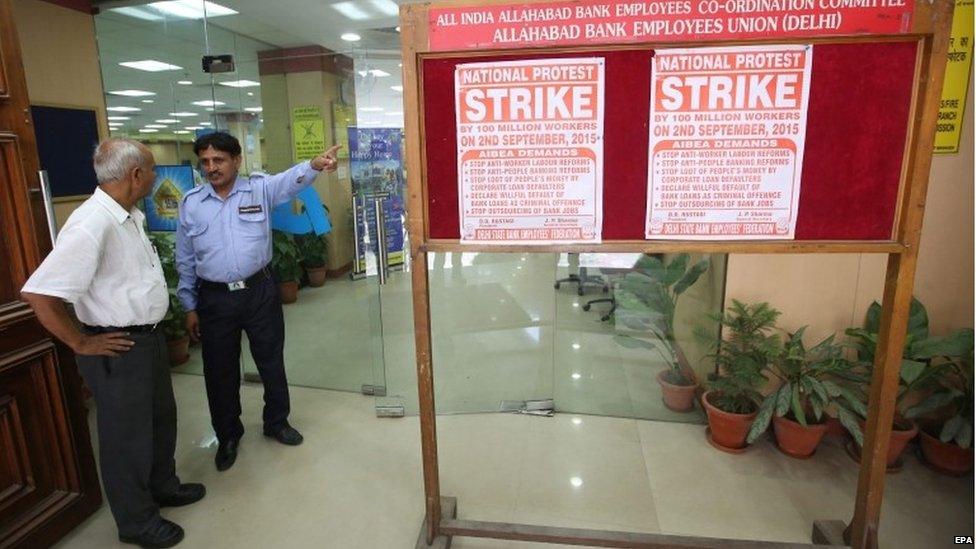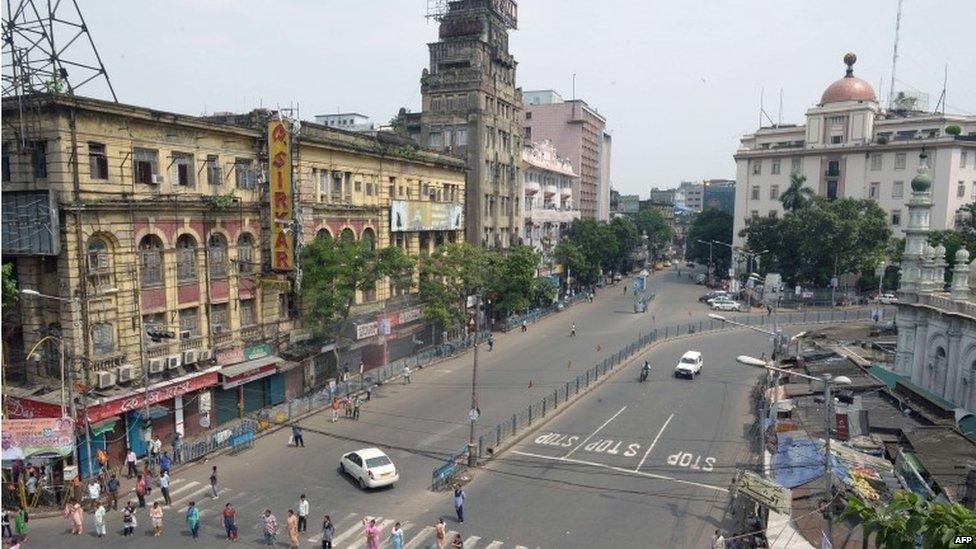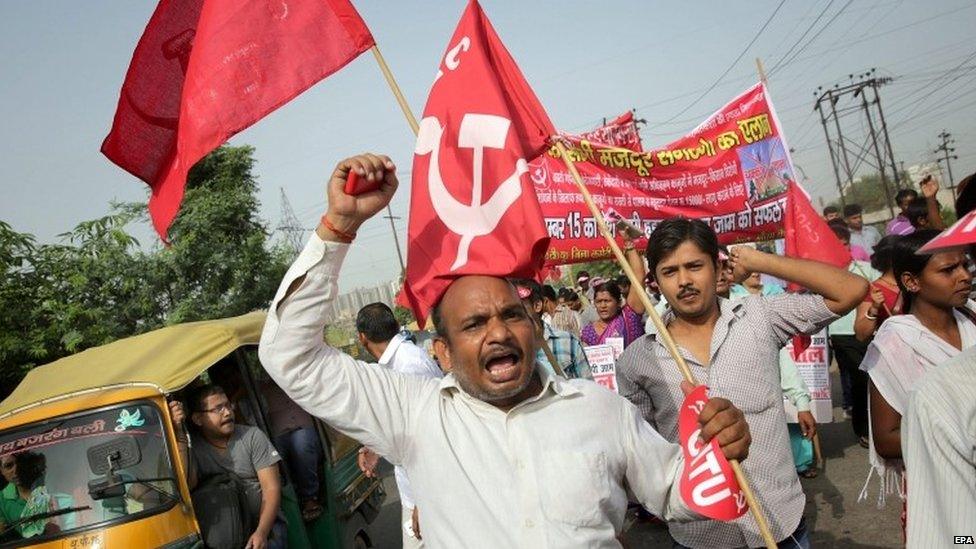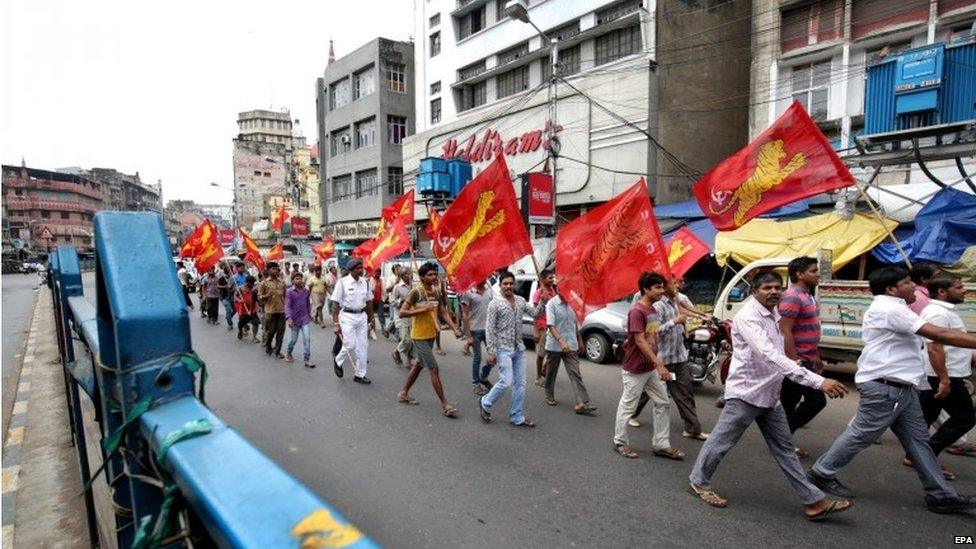Indian workers strike over Modi labour reforms
- Published

Bank workers have participated in the strike
Workers across India are staging a day-long strike to protest at the economic policies of the government.
They say the "pro-business" policies of the Narendra Modi-led BJP government will put their jobs at risk and hurt ordinary people.
The unions are demanding the government drop plans to sell off stakes in state-run companies and change labour laws.
Response to the strike has been mixed. Some banks are closed and public transport has been disrupted.
Reports say some 150 million workers - mainly in banking, manufacturing, construction and coal mining industries - belonging to 10 major unions are expected to stay away from work on Wednesday.
The strike appears to have hit public transport, with long queues of commuters and school children seen at a bus stops in many cities, including the capital, Delhi. Many passengers were also stranded at railway stations and airports.

Kolkata was virtually shut down, but the response in other parts of the country was mixed

Factory workers protested in Noida near the Indian capital, Delhi

Reports say some 150 million workers are expected to stay away from work
A large number of schools and businesses were shut in the states of West Bengal and Kerala, where unions enjoy significant clout, and public transport was disrupted, reports said.
Mr Modi won in a landslide at the general election last year, promising to revive a slowing economy and introduce reforms.
But the opposition has blocked some of his key tax and land acquisition reforms, and unions are also angry over the moves.
India's economy grew at an annual rate of 7% between April and June, official figures have shown.